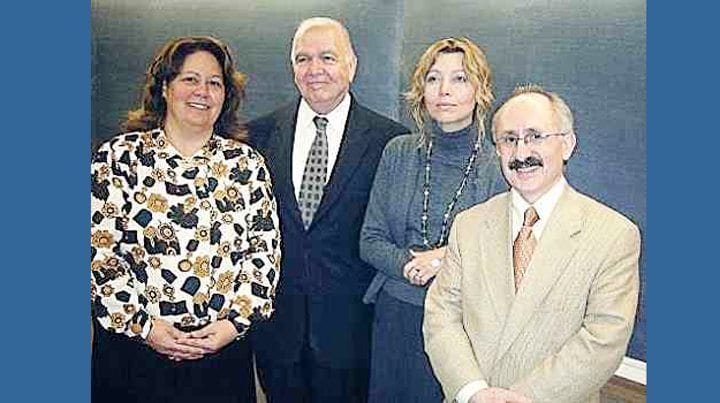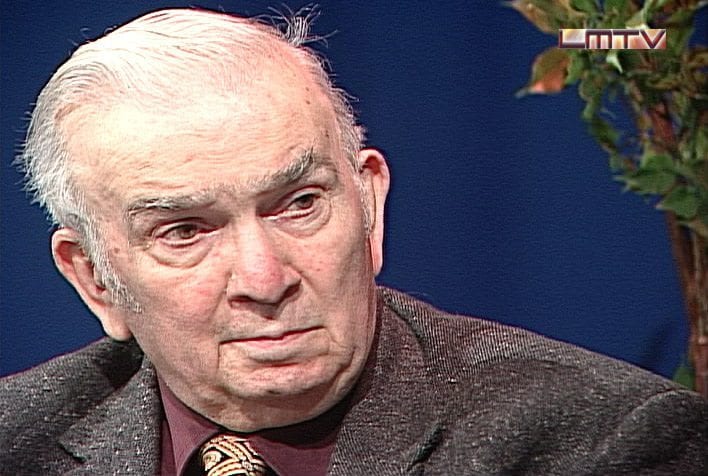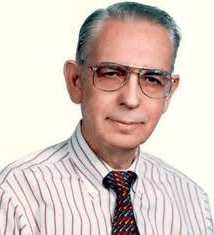By Ferruh Demirmen, Ph.D.
The news made hardly a ripple in the Turkish media, but a so-called Turkish-Armenian scholarship conference held on September 15-18, 2017 in Berlin had all the markings of a scandal. The conference, having the theme, “Past in the Present: European Approaches to the Armenian Genocide,” was the 10th in the series of “Workshop on Armenian-Turkish Studies” (WATS) held at different locations since its inception in 2010.
Primarily organized by the U.S.-based Middle East Studies Association (MESA), this year’s conference (WATS 2017) was held at the European Academy Berlin under the auspices of Dr. Martina Münch, a Minister of the State of Brandenburg. The co-organizers were the University of Michigan, University of Southern California (USC), and Lepsiushaus Potsdam.
The Pretense
The WATS series is magnanimously advertised as forums “where Turkish, Armenian and other historians could conduct an informed debate relating to the controversy surrounding the relocation of Ottoman Armenians during World War One.”
All that sounds good. The key words here are “controversy” and “debate.” Controversy on a historical topic should normally lead to debate, and the two words complement each other. The outcome of a debate may result in a stand-off, a compromise, and possibly accord.
This is how things should work out, especially in the academic world.
The Reality
But it turns out that lofty description for the WATS series is merely a PR front. For one thing, the institutions or universities that have organized and promoted the WATS conferences are those that advocate “Armenian genocide.” This is certainly the case with the organizers of WATS 2017.
In fact, the co-organizer Lepsiushaus Potsdam, a historical house where German Protestant missionary Johannes Lepsius (also known as the “Guardian Angel of the Armenians”) once lived, is now a museum in Potsdam, Germany, serving as a “Research Center for Genocide Studies.”
Obviously a mission well-suited for advancing the “Armenian genocide” cause! (Question: Has Lepsiushaus organized a conference on the 1904-1907 Namibian atrocities committed by German settlers in Namibia? The racial extermination and collective punishment brought upon the native population are sometimes known as the “First Genocide in the 20th Century.”
As for the other co-organizers, they are U.S.-based, and the positions of these institution on the 1915 events in Ottoman Anatolia are beyond dispute. They are die-hard proponents of “genocide.” In the U.S. the Armenian foundations are known for their “generosity” in advancing the “genocide” thesis, and a number of academic institutions reap rewards from this bounty. At the University of Michigan, for example, the Manoogian Foundation funds genocide advocacy under the banner of “Armenian Studies Program.”
Another foundation has enabled Prof. Taner Akçam, the “Prince Charming” of the Armenian lobby, to be awarded the “Robert Aram, Marianne Kaloosdian and Stephen and Marian Mugar Chair in Armenian Genocide Studies” at Clark University in Massachusetts – never mind Akçam’s unsavory past related to subversive activities and prison term in Turkey. Earlier, Prof. Akçam received financial support from the Zoryan Institute, and was the beneficiary of the “Cafesjian Family Foundation” when he was at the University of Minnesota.
The largess from Armenian foundations to fund genocide “studies” goes on.
Second, and not surprisingly, the attendees to the WATS conferences have been those researchers that support one way or another the “Armenian genocide” narrative. Academicians with Turkish names are particularly welcome in these conferences. In fact, they are the prized attendees. Researchers, Turkish or foreign, that do not subscribe to the Armenian narrative are treated as “persona non grata.” The net effect is that the conferences act like exclusive clubs.
Hypocrisy
Given these facts, it is sophistry or chicanery to talk of WATS conferences as forums to provide “an informed debate relating to the controversy” on the 1915 events in Ottoman Anatolia. Such language is pure deception. There is no substantive debate in these conferences, and given the prevailing mindset, it is naive to expect any. The “Armenian genocide” narrative is treated as a historical truth, not as a controversy, and the overarching debate is nonexistent.
In fact, the title of this year’s conference, bearing the phrase “Armenian genocide,” drops all the pretense of being anything other than a doctrinaire posture on the 1915 events in Ottoman Anatolia.
What all this amounts to is hypocrisy – in fact contemptible hypocrisy, given that it takes place in an academic environment and violates what true academic scholarship stands for. The august corridors of the academia can sometimes be deafeningly numbing if prejudice and cushy incentives take over and the mind is grievously frozen.
Inconvenient Truths
The no-debate, doctrinaire stance on the Armenian issue stands in direct contradiction with an inconvenient truth: the 2013 and 2015 positions of the European Court of Human Rights (ECHR) and the 2016 position of France’s Constitutional Council. These high judicial authorities in Europe have underscored the fact that “Armenian genocide” is controversial among scholars.
The doctrinaire stance is also in conflict with the position of a large number of Turkish and foreign researchers that do not subscribe to the Armenian narrative.
Another “inconvenient truth” is that the 1948 UN Convention on Genocide explicitly requires that any determination as to the crime of genocide must be made by a competent tribunal – a requirement the proponents of “Armenian genocide” would rather – and in fact do not – talk about. The claim of “Armenian genocide” by parliaments, politicians, establishments such as MESA, etc., runs counter the edicts of this Convention. This is what the ECHR and France’s Constitutional Court have ruled.
But then, as far as the Armenian side, why bother with such “details” when a well-funded, well-organized propaganda does a wonderful job to peddle the Armenian version of history!
The Armenian propaganda in the West has been so effective that it has given rise to what this author has called the “Settled History Syndrome,” an affliction in the Western media that accepts Armenian allegations as a fact without questioning the veracity of these allegations – in utter contempt of anti-genocide scholars, and more recently, also the judicial positions of high courts in Europe.
An Audacious Complaint
All the above aside, what made this year’s WATS conference all the more egregious was a letter sent by MESA President Prof. Beth Baron and MESA Executive Director Dr. Amy W. Newhall to President Recep Tayyip Erdoğan and Prime Minister Binali Yıldırım of Turkey. Dated September 15, 2017, and copied to few other high Turkish officials as well as a number of EU, Council of Europe and UN officials, the MESA directors had the audacity to complain and express “deep concern” about Turkey-based scholars being allegedly prevented from attending the Berlin conference – while also preaching the virtues of “academic freedom” and “freedom of expression.”
But on the other hand, the same MESA officers didn’t have any compunction about limiting the conference to their hand-picked scholars.
The MESA letter led to angry protests from some circles in Turkey, including Dr. Doğu Perinçek, given that the efforts of some Turkish researchers opposing the “genocide” thesis, and wanting to participate in the conference, were rebuffed by the conference administrators.
On display was hypocrisy galore.
As far as known, Turkish officials have not replied to the MESA letter. A reply given by this author on October 27, 2017 can be viewed at:
https://www.turkishnews.com/tr/content/wp-content/uploads/2017/11/Demirmen-MESA.pdf
Note: This article was originally published in The Diplomatic Observer in English and Turkish in December 2017, Ankara, Turkey.




